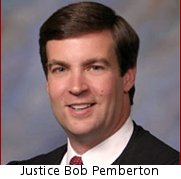8/12/2011
Texas Appeals Court: Driver Has No Right to Dashcam VideoTexas Court of Appeals sides with police officer claiming dashboard camera video of traffic stop does not exist.

Drivers have no recourse if police say the tape from a dashboard-mounted video camera is not available, according to a ruling Wednesday from the Texas Court of Appeals. Mark Lee Martin wanted to defend himself against drug possession charges filed in the wake of an August 29, 2008 traffic stop, but he was told no video was available.
Travis County Sheriff's Deputy Darren Jennings claimed that he pulled over Martin that evening because he failed to signal a left-hand turn. Within less than two weeks after the incident, Martin's attorney formally requested that the department preserve video evidence from the stop. Subpoenas were issued to ensure "all videos and dispatch calls" would be saved. At trial, Jennings was asked why the camera evidence had not been kept.
"Since I didn't put it in my report it wasn't preserved because I didn't believe it had any type of evidential value," Jennings told the court.
The dashcam is automatically activated when an officer turns on his emergency lights. Department policy states that all video must automatically be saved for thirty days. Jennings could not say whether his machine was operating that night, but he would have noted either at the beginning or end of the shift if the device had not been functional. Jennings stated that the only way to know for sure if the video had been taken would have been if he had preserved the video. Martin argued the police were obviously hiding evidence.
"The officers intentionally destroyed the video and thereby put exculpatory evidence as far as the search is concerned or evidence favorable to the accused out of the reach of the accused," Martin's attorney claimed. "We feel that for no other reason the search is invalid and any evidence found as a result of that search should be suppressed."
The appellate court found no merit in this argument.
"We agree with the state that the record supports a finding by the district court that the police did not act in bad faith," Justice Bob Pemberton wrote. "The United States Supreme Court has held that 'unless a criminal defendant can show bad faith on the part of the police, failure to preserve potentially useful evidence does not constitute a denial of due process of law.'"
The court found no evidence of bad faith because the officer testified that he had "no clue" whether there even was a recording made.
"There is no indication in the record that Jennings or his supervisors handled the videotape in question any differently than they handled other videotapes," Pemberton wrote. "Nor is there any indication in the record that the tape was not preserved because of any improper motive on the part of Jennings or other officers."
The court concluded that failure to follow the instructions on the subpoena was not evidence of bad faith because Jennings testified that he never received the document.
A copy of the unpublished decision is available in a PDF file at the source link below.


